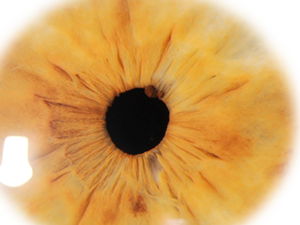
When someone drinks alcohol for a prolonged period of time and then stops, the body reacts to its absence. This is alcohol withdrawal, and it causes uncomfortable physical and emotional symptoms. While it’s normal to experience these symptoms on occasion, a person with anger issues tends to experience them more often and to a more severe degree. Additionally, when people drink they tend to struggle with emotions.
Links between Anger, Aggression, and Alcohol Addiction
Culturally, alcohol use is not only acceptable, but heartily encouraged via enticing advertising, subtle and not so subtle peer pressure, and its abundant availability almost anywhere you go. Sometimes, you may also have feelings of guilt and shame along with these signs of anger. The brain is the human body’s main organ that deals with cognition, memory, and emotional responses. To work properly, it has many special chemical-like substances known as neurotransmitters. These neurotransmitters are responsible for the emotional and cognitive processes of the brain.
Who Experiences Alcohol Withdrawal Symptoms?
They may overreact to situations with angry outbursts that are out of proportion to the situation. Obsessive-compulsive disorder (OCD) is a mental health disorder involving obsessive thoughts and compulsive behavior. A person with OCD has unwanted, disturbing thoughts, urges, or images that drive them to do something repetitively. If you often drink to excess—especially if you often alcoholism and anger black out or fail to remember what you did while drunk—changing your behavior can be difficult. You may also have a pattern of using alcohol to cope with stressful situations, or as an excuse to expel pent-up anger. If you tend to pick fights without a strong enough reason, for example, it’s possible you’re venting feelings stemming from a deeper issue you haven’t tackled.
- In addition to the brain, alcohol also risks health as it can severely damage the liver, heart, digestive system, immune system, mood, and sleep.
- They found that people with HTR2B Q20 tended to be more impulsive and aggressive under the influence of alcohol.
- On the flip side, alcohol dependence commonly leads to significant withdrawal symptoms that are often side effects of alcohol addiction.
Family Programs
It was found that those scoring lower became significantly more aggressive than those who had higher ratings on the CFC. The findings were explained by emphasizing that concern for the future involves greater prefrontal cortex resources that help inhibit the excessive impact of alcohol. Alcohol is linked to anger and aggression more than any other psychotropic substance.7 While not all drinkers become angry, someone who is predisposed to anger can become more aggressive when they drink alcohol. If you or someone you love is battling aggression and alcohol misuse, help is available. Consult with a mental health professional and/or an addiction specialist who can provide resources and recommendations for treatment options. Among the many studied physiological and behavioral effects of alcohol is disinhibition, or reduced control over impulses or urges after intoxication.

The association between alcohol and aggression or violence is complex, but there is undoubtedly a connection. Alcohol may not be the direct cause of violence, but it definitely compounds angry and aggressive behavior, which can lead to violence. Alcohol plays a significant role in violent incidents all over the world. In fact, alcohol consumption plays a part in nearly half of all violent crimes and sexual assaults. Keep in mind, sometimes it is the victim who is under the influence.
The Chemistry Behind Alcohol and Anger Issues
- The journal Experimental and Clinical Psychopharmacology reports on studies showing that alcohol can increase aggression in both men and women, but more so in men.
- Although little empirical work addresses the role of anger in the treatment of alcohol dependence, research has focused on other affect experiences.
- A 2017 study showed that men under the influence of alcohol had higher rates of physical and sexual aggression.
- You can do it at your desk at work or while you are stopped at a red light.
Alcohol use disorder (AUD) is a condition in which a person taking alcohol struggles with alcohol dependence and has minimal control over the cravings for alcohol despite negative social and economic consequences. An interesting fact is that alcohol amplifies our underlying emotions at the moment of consumption. If someone’s harboring anger or frustration before drinking, it’s likely those feelings will surge once they’re under the influence – hence becoming an ‘angry drunk’. Conversely, if someone starts drinking in a jovial mood or high spirits, they may remain cheerful throughout – making them what we call ‘happy drunks’. Start by thinking about your feelings regarding alcohol and anger. Have family members or others mentioned concerns about your alcohol consumption?

Is Treatment An Option?

A comparative study on anger traits and alcohol-induced aggression confirms that many angry drunks are already naturally angry people. So if someone you know is normally short-tempered, this may explain why they display rage when drinking. If you or a loved one struggles with anger, especially when drinking, wait to revisit the conversation https://ecosoberhouse.com/ when you’re both sober. Healthy habits as part of addiction treatment such as mindfulness, meditation, and yoga can help reduce addiction cravings as well as calm anger issues. Although it’s commonly believed that anger issues while intoxicated stem from suppressing anger while sober, research shows that is not necessarily the case.

Attention deficit hyperactivity disorder
The treatment should target both the person’s mental health and substance use disorder as two parts of a whole. Ashwood Recovery, located in Boise, Idaho, provides outpatient treatment for co-occurring disorders, individual alcohol counseling, and family counseling. Alcoholism can lead to anger toward loved ones, among other issues. Whatever your struggle, we support you through the consequences and begin your recovery journey. „Trait anger“ refers to a person’s general tendency to experience chronic anger over time. An angry person tends to seek out stimuli that activate feelings of anger.

